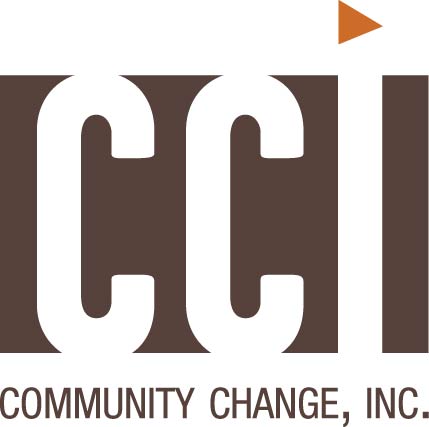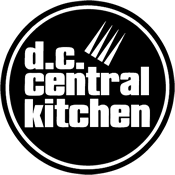Q3 Beneficiaries Announced at Foundation Beyond Belief (a little early)
By AdministratorOur Q3 2015 Beneficiaries at Foundation Beyond Belief have one thing in common: they all use long-term studies and evidence-based practices to guide their programming. The underlined portions of the descriptions highlight some of the examples of this evidence-based approach.
Human Rights and Conference Charity Benefit Beneficiary
Community Change, Inc
#blacklivesmatter: listen, learn, think, discuss, act – Highlighted organization
Join us July 25 for FBB Humanism at Work Conference
Community Change, Inc approaches racism, racial relations, and racial responsibility from the perspective that racial inequalities are a white problem. This approach, borne out of the civil rights movement’s Kerner Commission, galvanized Community Change, Inc’s founder Horace Seldon to spend his career tackling these issues in Boston. His unforgiving, relentless commitment to educate, act, and speak has set the tone for many minority and social services organizations in the Boston area.
Community Change, Inc. maintains an extensive resource library on race relations. They develop future leadership through youth engagement and internships as well as inform the public through active education opportunities.
Education
Artists for Humanity (AFH)
#blacklivesmatter: listen, learn, think, discuss, act – Highlighted organization
Join us July 25 for FBB Humanism at Work Conference
Artists for Humanity (AFH), located in South Boston, provides art students and potential artists with a workshop to explore their talent. The students receive stipends, as well as opportunities to develop and sell their art. The students are supported within their personal artistic inspiration but also encouraged to explore other media. Students are employees, equals with mentors who guide them from the creative process through the business of the art world. Students participate in client meetings and financial deals. Artists for Humanity is not your traditional afterschool arts program, it is an interdisciplinary paid internship and career apprenticeship for young artists.
Natural World
Pure Earth has a measured and scientific approach to pollution reduction. The coordination and partnerships throughout each long-term project provide a dual effect model that improves both public health and contaminated environmental areas. Current projects include creating a safer method of recycling car batteries, alternative methods to reduce the use of mercury in artisanal gold mining in Mongolia, and creating e-waste collection streams in Ghana. All projects are designed to be more effective financially, cause lower environmental damage, and increase public health at the local level. Pure Earth engages with universities as well as local and governmental officials to first set baseline testing. They then begin their public health education programs in the local and regional areas. The essential focus is on treatment and environmental contamination mitigation. Pure Earth is impressive in the evaluations of their own projects, each of which has published reports and monitoring processes. Their programs are scalable, as they address similar contaminant issues in different geographic areas, and their work in one village is then applicable in other areas with similar concerns.
Challenge the Gap
World Faith is an interfaith organization with the primary goal of reducing violence. Through countering narratives of Otherism, the struggle for the life of others, World Faith encourages humanization through volunteering together across denominations and religions. World Faith commits to addressing the underlying economic issues that make violence possible. They fund projects that address women’s empowerment, children’s education, and public health. Their goal is to have “minority majority” faith demographics, meaning the largest faith group represented among volunteers makes up less than 50%. Projects they help follow the Sustainable Livelihood model, which is community centered, holistic, and aiming for sustainability. World Faith is currently in the middle of a multiyear evaluation to build more effective models. They are also designing surveys to evaluate changing attitudes toward religious difference.
Poverty and Health Beneficiary
DC Central Kitchen tackles food distribution availability in Washington, DC., where there is a significant lack of chain groceries located in specific neighborhoods. Many of the small grocers, which the neighbors depend on, do not supply healthy options or accept SNAP benefits. The areas identified have been studied by public health officials in Washington DC based on the statistical realities of population, average income, grocery store per resident, and SNAP benefits. The areas in the three wards are clearly identified as food deserts. The program developed by DC Central Kitchen supplied neighborhood groceries with additional refrigeration ability, subsidized wholesale healthy products, and training for grocery staff and recipes.
The data collection by DC Central Kitchen is a regular and vital part of their operations. "DC Central Kitchen produces a lot of data," DC Central Kitchen CEO Mike Curtin said, "The effort over the last couple years has been to bring that data together, use software systems and really create meaning out of that data. We needed to track it, we needed to monetize it, and we needed to put it in terms that people could understand."
DC Kitchen also provides vocational training and local jobs. They are not simply a charity, they also work on a social enterprise model. Not only do they supply directly to food based pantries and grocery stores, but they made sure that there is training available to some of those that needed to be fed, so they could feed themselves and others.





